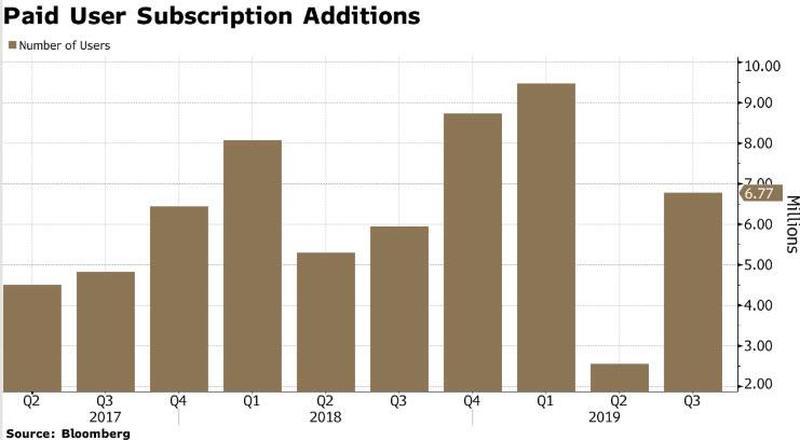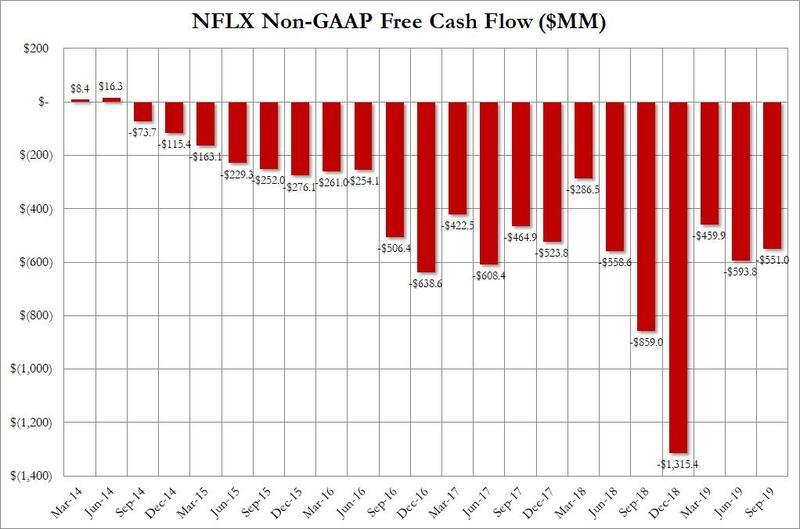Netflix To Spend $15 Billion On Content Amid Escalating Streaming Wars
Last month, Netflix confirmed competition among other streaming services is heating up as it expects to add fewer subscribers in the quarters ahead. To combat these trends, Netflix intends to spend a whopping $15 billion on programming this year, outsizing its competition by a longshot, reported Bloomberg.
The streaming wars between Netflix, Disney+, Apple Tv, Amazon Prime, Hulu, and YouTube are gaining momentum into the late year and will heat up through 2020.
Netflix CEO Reed Hastings told an audience at the DealBook conference Wednesday that the streaming company must outspend its competitors to win the streaming war.
“We plan on taking spend up quite a bit,” Hastings said at the NYC event. “We’re growing and investing around the world. We’ve been strong in series. Now we’re getting really strong in movies.”
Hastings’ comments come at a time when the company recently delivered a mixed earnings report that showed a beat on earnings, but a disturbing trend in the slowdown of subscribers.
Earlier this year, Netflix raised prices on its HD streaming plan from $10.99 to $12.99 per month. It blamed the price increase on a slowdown in subscribers.
“Since our US price increase earlier this year, retention has not yet fully returned on a sustained basis to pre-price-change levels, which has led to slower US membership growth,” Netflix wrote in a letter to shareholders last month.
Netflix remains the top streaming service in the world, partly because it’s addicted to debt.
The company’s ballooning debt pile, coupled with a slowdown in subscribers, is a significant issue since it doesn’t expect to be cash-flow positive for several years.
The ongoing cash burn and large debt issuances have made the company’s stock unattractive to investors this year, mainly because of the rotation from growth into value stocks. Investors are searching for companies with stable cash flows amid the increasing threat a recession could arrive late next year.
Tyler Durden
Thu, 11/07/2019 – 14:35
via ZeroHedge News https://ift.tt/34G56r4 Tyler Durden

